SLLSEH7B December 2013 – June 2016 SN65LVPE512
PRODUCTION DATA.
- 1 Features
- 2 Applications
- 3 Description
- 4 Revision History
- 5 Pin Configuration and Functions
- 6 Specifications
- 7 Parameter Measurement Information
- 8 Detailed Description
- 9 Application and Implementation
- 10Power Supply Recommendations
- 11Layout
- 12Device and Documentation Support
- 13Mechanical, Packaging, and Orderable Information
Package Options
Mechanical Data (Package|Pins)
Thermal pad, mechanical data (Package|Pins)
- RGE|24
Orderable Information
6 Specifications
6.1 Absolute Maximum Ratings
over operating free-air temperature range (unless otherwise noted)(1)| MIN | MAX | UNIT | ||
|---|---|---|---|---|
| Supply voltage(2) | VCC | –0.5 | 4 | V |
| Voltage | Differential I/O | –0.5 | 4 | V |
| Control I/O | –0.5 | VCC + 0.5 | V | |
| Storage temperature, Tstg | –65 | 150 | °C | |
(1) Stresses beyond those listed under Absolute Maximum Ratings may cause permanent damage to the device. These are stress ratings only, which do not imply functional operation of the device at these or any other conditions beyond those indicated under Recommended Operating Conditions. Exposure to absolute-maximum-rated conditions for extended periods may affect device reliability.
(2) All voltage values, except differential voltages, are with respect to network ground terminal.
(3) Tested in accordance with JEDEC Standard 22, Test Method A115-A
6.2 ESD Ratings
| VALUE | UNIT | |||
|---|---|---|---|---|
| V(ESD) | Electrostatic discharge | Human-body model (HBM), per ANSI/ESDA/JEDEC JS-001(1) | ±5000 | V |
| Charged-device model (CDM), per JEDEC specification JESD22-C101(2) | ±1500 | |||
| Machine model(3) | ±200 | |||
(1) JEDEC document JEP155 states that 500-V HBM allows safe manufacturing with a standard ESD control process.
(2) JEDEC document JEP157 states that 250-V CDM allows safe manufacturing with a standard ESD control process.
6.3 Recommended Operating Conditions
| MIN | NOM | MAX | UNIT | |||
|---|---|---|---|---|---|---|
| VCC | Supply voltage | 3 | 3.3 | 3.6 | V | |
| CCOUPLING | AC-coupling capacitor | 75 | 200 | nF | ||
| Operating free-air temperature | –40 | 85 | °C | |||
| DEVICE PARAMETERS | ||||||
| ICC | Supply current | EN_RXD, RSVD, EQ cntrl = NC, K28.5 pattern at 5 Gbps, VID = 1000mVp-p |
100 | 120 | mA | |
| ICCRx.Detect | In Rx.Detect mode | 2 | 5 | |||
| ICCsleep | EN_RXD = GND | 0.01 | 0.1 | |||
| ICCU2-U3 | Link in USB low power state | 21 | ||||
| Maximum data rate | 5 | Gbps | ||||
| tENB | Device enable time | Sleep mode exit time EN_RXD L → H With Rx termination present |
100 | µs | ||
| tDIS | Device disable time | Sleep mode entry time EN_RXD H → L | 2 | µs | ||
| TRX.DETECT | Rx.Detect start event | Power-up time | 100 | µs | ||
| CONTROL LOGIC | ||||||
| VIH | High level input voltage | 2.8 | VCC | V | ||
| VIL | Low level input voltage | –0.3 | 0.5 | V | ||
| VHYS | Input hysteresis | 150 | mV | |||
| IIH | High level input current | OSx, EQx, DEx = VCC | 30 | µA | ||
| EN_RXD = VCC | 1 | |||||
| RSVD = VCC | 30 | |||||
| IIL | Low level input current | OSx, EQx, DEx = GND | –30 | µA | ||
| EN_RXD = GND | –30 | |||||
| RSVD = GND | –1 | |||||
6.4 Thermal Information
| THERMAL METRIC(1) | SN65LVPE512 | UNIT | ||
|---|---|---|---|---|
| RGE (VQFN) | RMQ (WQFN) | |||
| 24 PINS | 24 PINS | |||
| RθJA | Junction-to-ambient thermal resistance | 47.5 | 41.6 | °C/W |
| RθJC(top) | Junction-to-case (top) thermal resistance | 51.6 | 37 | °C/W |
| RθJB | Junction-to-board thermal resistance | 24.6 | 11.5 | °C/W |
| RθJC(bot) | Junction-to-case (bottom) thermal resistance | 6.4 | 6.4 | °C/W |
| ΨJT | Junction-to-top characterization parameter | 1.4 | 0.5 | °C/W |
| ΨJB | Junction-to-board characterization parameter | 24.6 | 11.4 | °C/W |
(1) For more information about traditional and new thermal metrics, see the Semiconductor and IC Package Thermal Metrics application report.
6.5 Electrical Characteristics
over recommended operating conditions (unless otherwise noted)| PARAMETER | TEST CONDITIONS | MIN | TYP | MAX | UNIT | |
|---|---|---|---|---|---|---|
| PD | Device power dissipation | RSVD, EN_RXD, EQ cntrl pins = NC, K28.5 pattern at 5 Gbps, VID = 1000 mVp-p |
330 | 450(5) | mW | |
| PSlp | Device power dissipation in sleep mode | EN_RXD = GND | 0.03 | 0.4 | mW | |
| RECEIVER AC/DC | ||||||
| Vindiff_p-p | RX1, RX2 input voltage swing | AC-coupled differential RX peak to peak signal | 100 | 1200 | mVpp | |
| VCM_RX | RX1, RX2 common-mode voltage | 3.3 | V | |||
| VinCOM_P | RX1, RX2 AC peak common-mode voltage | Measured at Rx pins with termination enabled | 150 | mVP | ||
| ZCM_RX | DC common-mode impedance | 18 | 26 | 30 | Ω | |
| Zdiff_RX | DC differential input impedance | 72 | 80 | 120 | Ω | |
| ZRX_High_IMP+ | DC Input high impedance | Device in sleep mode Rx termination not powered measured with respect to GND over 500 mV maximum | 50 | 85 | kΩ | |
| VRX-LFPS-DETpp | Low frequency periodic signaling (LFPS) detect threshold | Measured at receiver pin, below minimum output is squelched, above max input signal is passed to output | 100 | 300 | mVpp | |
| RLRX-DIFF | Differential return loss | 50 MHz – 1.25 GHz | 10 | 11 | dB | |
| 1.25 GH – 2.5 GHz | 6 | 7 | ||||
| RLRX-CM | Common-mode return loss | 50 MHz – 2.5 GHz | 11 | 13 | dB | |
| TRANSMITTER AC/DC | ||||||
| VTXDIFF_TB_P-P | Differential peak-to-peak output voltage (VID = 800, 1200 mVpp, 5 Gbps) |
RL = 100 Ω ±1%, DEx, OSx = NC, Transition Bit |
900 | 1241 | 1500 | mV |
| RL = 100 Ω ±1%, DEx = NC, OSx = GND Transition Bit |
1105 | |||||
| RL = 100 Ω ±1%, DEx = NC, OSx = VCC Transition Bit |
1324 | |||||
| VTXDIFF_NTB_P-P | RL = 100 Ω ±1%, DEx=NC, OSx = 0,1,NC Non-Transition Bit |
1241 | mV | |||
| RL = 100 Ω ±1%, DEx=0 OSx = 0,1,NC Non-Transition Bit |
866 | |||||
| RL = 100 Ω ±1%, DEx=1 OSx = 0,1,NC Non-Transition Bit |
691 | |||||
| DE | De-emphasis level OS1,2 = NC (for OS1, 2 = 1 and 0 see Table 4) | DE1/DE2 = NC | 0 | dB | ||
| DE1/DE2 = 0 | –3 | |||||
| DE1/DE2 = 1 | –5 | |||||
| TDE | De-emphasis width | 0.85 | UI | |||
| Zdiff_TX | DC differential impedance | 72 | 90 | 120 | Ω | |
| ZCM_TX | DC common-mode impedance | Measured w.r.t to AC ground over 0 mV to 500 mV | 18 | 23 | 30 | Ω |
| RLdiff_TX | Differential return loss | f = 50 MHz – 1.25 GHz | 9 | 10 | dB | |
| f = 1.25 GHz – 2.5 GHz | 6 | 7 | ||||
| RLCM_TX | Common-mode return loss | f = 50 MHz – 2.5 GHz | 11 | 12 | dB | |
| ITX_SC | TX short circuit current | TX± shorted to GND | 60 | mA | ||
| VTX_CM_DC | Transmitter DC common-mode voltage | OSx = NC | 2 | 2.6 | 3 | V |
| VTX_CM_AC_Active | TX AC common-mode voltage active | 30 | 100 | mVpp | ||
| VTX_idle_diff-AC-pp | Electrical idle differential peak to peak output voltage | HPF to remove DC | 0 | 10 | mVpp | |
| VTX_CM_DeltaU1-U0 | Absolute delta of DC CM voltage during active and idle states | 35 | 200 | mV | ||
| VTX_idle_diff-DC | DC Electrical idle differential output voltage | Voltage must be lowpass filtered to remove any AC component | 0 | 10 | mV | |
| Vdetect | Voltage change to allow receiver detect | Positive voltage to sense receiver termination | 600 | mV | ||
| CTX | Tx input capacitance to GND | At 2.5 GHz | 1.25 | pF | ||
(1) Includes RJ at 10–12 BER
(2) Determininstic jitter measured with K28.5 pattern, Random jitter measured with K28.5 pattern at the ends of reference channel, VID = 1000 mVpp, 5 Gbps, –3.5-dB DE from source
(3) Rj calculated as 14.069 times the RMS random jitter for 10–12 BER
(4) UI = 200 ps
(5) The maximum rating is simulated under 3.6-V VCC.
6.6 Timing Requirements
| MIN | NOM | MAX | UNIT | |||
|---|---|---|---|---|---|---|
| tR, tF | Output rise and fall time | 20% to 80% of differential voltage measured 1 inch from the output pin | 30 | 65 | ps | |
| tRF_MM | Output rise and fall time mismatch | 20% to 80% of differential voltage measured 1 inch from the output pin | 1.5 | 20 | ps | |
| Tdiff_LH, Tdiff_HL | Differential propagation delay | De-Emphasis = –3.5 dB (CH 0 and CH 1). Propagation delay between 50% level at input and output |
305 | 370 | ps | |
| tidleEntry, tidleExit | Idle entry and exit times | See Figure 2 | 4 | 6 | ns | |
6.7 Switching Characteristics
over operating free-air temperature range (unless otherwise noted)| MIN | TYP | MAX | UNIT | |||
|---|---|---|---|---|---|---|
| TTX-EYE (1) (2) | Total jitter (Tj) at point A | Device setting: OS1 = L, DE1 = –6 dB, EQ1 = 7 dB |
0.23 | 0.5 | UI(4)pp | |
| DJTX (2) | Deterministic jitter (Dj) | 0.14 | 0.3 | |||
| RJTX (2) (3) | Random jitter (Rj) | 0.08 | 0.2 | |||
| TTX-EYE (1) (2) | Total jitter (Tj) at point B | Device setting: OS2 = H, DE2 = –6 dB, EQ2 = 7 dB |
0.15 | 0.5 | UI(4)Pp | |
| DJTX (2) | Deterministic jitter (Dj) | 0.07 | 0.3 | |||
| RJTX (2) (3) | Random jitter (Rj) | 0.08 | 0.2 | |||
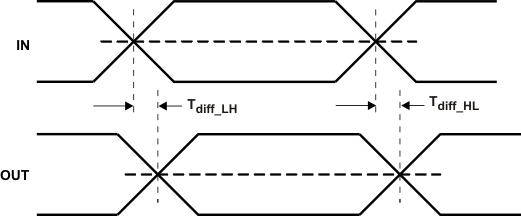 Figure 1. Propagation Delay
Figure 1. Propagation Delay
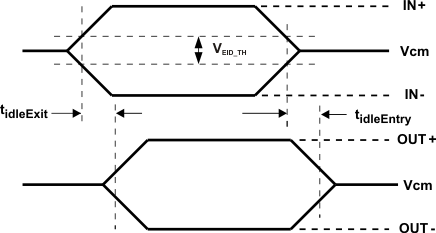 Figure 2. Electrical Idle Mode Exit and Entry Delay
Figure 2. Electrical Idle Mode Exit and Entry Delay
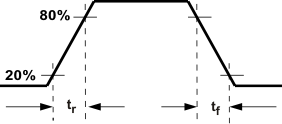 Figure 3. Output Rise and Fall Times
Figure 3. Output Rise and Fall Times
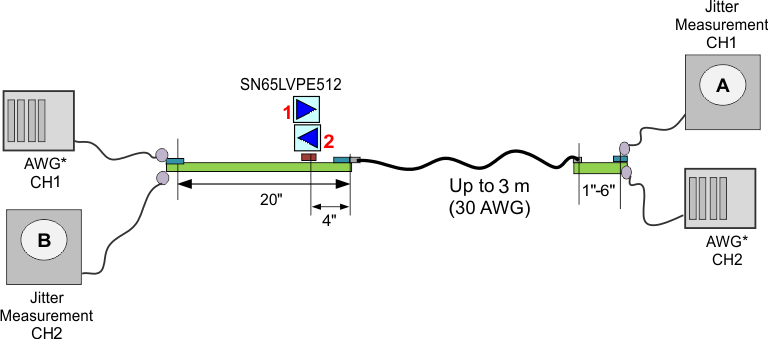 Figure 4. Jitter Measurement Setup
Figure 4. Jitter Measurement Setup
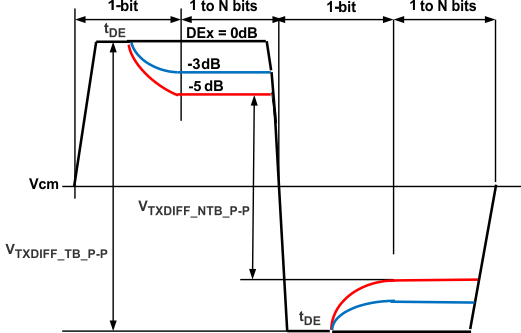 Figure 5. Output De-Emphasis Levels OSx = NC
Figure 5. Output De-Emphasis Levels OSx = NC
6.8 Typical Characteristics
Table 1. Case I Fixed Output and Variable Input Trace
| GRAPH TITLE | FIGURE NUMBER |
|---|---|
| DE = 0 dB, EQ = 0 dB, Input = 4 inches, Output = 4 inches + 3-m Cable | Figure 6 |
| DE = 0 dB, EQ = 0 dB, Input = 8 inches, Output = 4 inches + 3-m Cable | Figure 7 |
| DE = 0 dB, EQ = 0 dB, Input = 12 inches, Output = 4 inches + 3-m Cable | Figure 9 |
| DE = 0 dB, EQ = 0 dB, Input = 16 inches, Output = 4 inches + 3-m Cable | Figure 9 |
| DE = 0 dB, EQ = 0 dB, Input = 20 inches, Output = 4 inches + 3-m Cable | Figure 10 |
| DE = 0 dB, EQ = 7 dB, Input = 24 inches, Output = 4 inches + 3-m Cable | Figure 11 |
| DE = 0 dB, EQ = 7 dB, Input = 32 inches, Output = 4 inches + 3-m Cable | Figure 12 |
| DE = 0 dB, EQ = 7 dB, Input = 36 inches, Output = 4 inches + 3-m Cable | Figure 13 |
| DE = 0 dB, EQ = 15 dB, Input = 36 inches, Output = 4 inches + 3-m Cable | Figure 14 |
| DE = 0 dB, EQ = 15 dB, Input = 48 inches, Output = 4 inches + 3-m Cable | Figure 15 |
Table 2. Case II Fixed Input and Variable Output Trace+ 3m Cable
| GRAPH TITLE | FIGURE NUMBER |
|---|---|
| DE = 0 dB, EQ = 7 dB, Input = 12 inches, Output = 4 inches + 3-m Cable | Figure 16 |
| DE = 0 dB, EQ = 7 dB, Input = 12 inches, Output = 8 inches + 3-m Cable | Figure 17 |
| DE = 0 dB, EQ = 7 dB, Input = 12 inches, Output = 12 inches + 3-m Cable | Figure 18 |
| DE = 0 dB, EQ = 7 dB, Input = 12 inches, Output = 16 inches + 3-m Cable | Figure 19 |
| DE = 0 dB, EQ = 7 dB, Input = 12 inches, Output = 20 inches + 3-m Cable | Figure 20 |
Table 3. Case III Fixed Input and Variable Output Trace (No Cable)
| GRAPH TITLE | FIGURE NUMBER |
|---|---|
| DE = 0 dB, EQ = 7 dB, Input = 12 Inches, Output = 8 Inches | Figure 21 |
| DE = 0 dB, EQ = 7 dB, Input = 12 Inches, Output = 32 Inches | Figure 22 |
| DE = 0 dB, EQ = 7 dB, Input = 12 Inches, Output = 36 Inches | Figure 23 |
| DE = –3 dB, EQ = 7 dB, Input = 12 Inches, Output = 36 Inches | Figure 24 |
| DE = –5 dB, EQ = 7 dB, Input = 12 Inches, Output = 40 Inches | Figure 25 |
| DE = –5 dB, EQ = 7 dB, Input = 12 Inches, Output = 44 Inches | Figure 26 |
6.8.1 Case I Fixed Output and Variable Input Trace
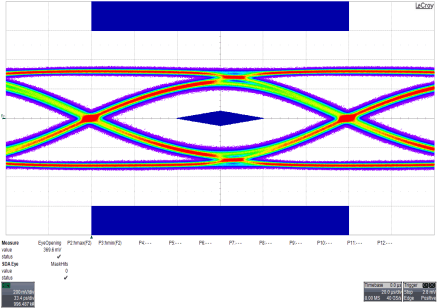 Figure 6. DE = 0 dB, EQ = 0 dB, Input = 4 inches, Output = 4 inches + 3-m Cable
Figure 6. DE = 0 dB, EQ = 0 dB, Input = 4 inches, Output = 4 inches + 3-m Cable
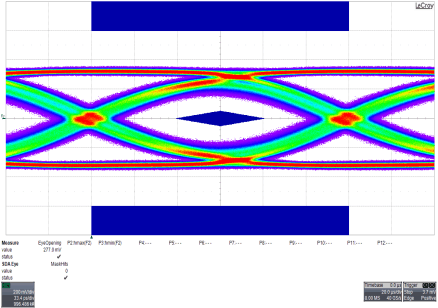 Figure 8. DE = 0 dB, EQ = 0 dB, Input = 12 inches, Output = 4 inches + 3-m Cable
Figure 8. DE = 0 dB, EQ = 0 dB, Input = 12 inches, Output = 4 inches + 3-m Cable
 Figure 10. DE = 0 dB, EQ = 0 dB, Input = 20 inches, Output = 4 inches + 3-m Cable
Figure 10. DE = 0 dB, EQ = 0 dB, Input = 20 inches, Output = 4 inches + 3-m Cable
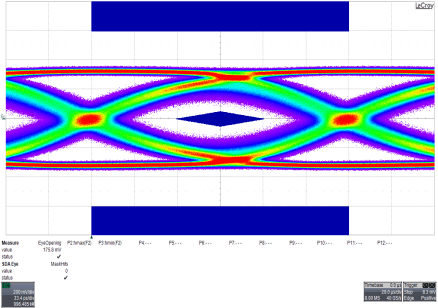 Figure 12. DE = 0 dB, EQ = 7 dB, Input = 32 inches, Output = 4 inches + 3-m Cable
Figure 12. DE = 0 dB, EQ = 7 dB, Input = 32 inches, Output = 4 inches + 3-m Cable
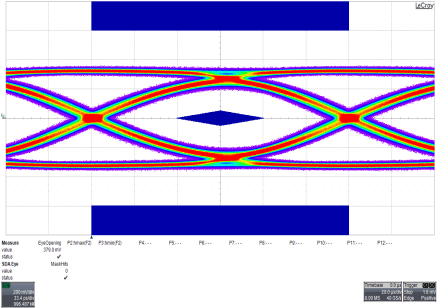 Figure 14. DE = 0 dB, EQ = 15 dB, Input = 36 inches, Output = 4 inches + 3-m Cable
Figure 14. DE = 0 dB, EQ = 15 dB, Input = 36 inches, Output = 4 inches + 3-m Cable
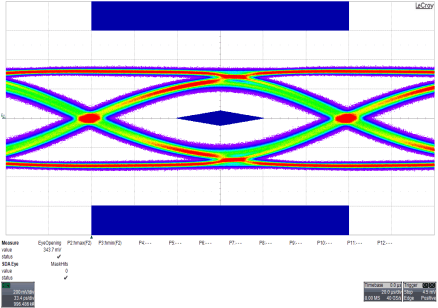 Figure 7. DE = 0 dB, EQ = 0 dB, Input = 8 inches, Output = 4 inches + 3-m Cable
Figure 7. DE = 0 dB, EQ = 0 dB, Input = 8 inches, Output = 4 inches + 3-m Cable
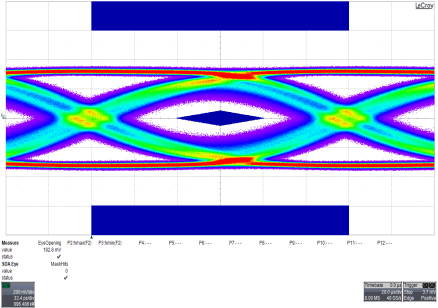 Figure 9. DE = 0 dB, EQ = 0 dB, Input = 16 inches, Output = 4 inches + 3-m Cable
Figure 9. DE = 0 dB, EQ = 0 dB, Input = 16 inches, Output = 4 inches + 3-m Cable
 Figure 11. DE = 0 dB, EQ = 7 dB, Input = 24 inches, Output = 4 inches + 3-m Cable
Figure 11. DE = 0 dB, EQ = 7 dB, Input = 24 inches, Output = 4 inches + 3-m Cable
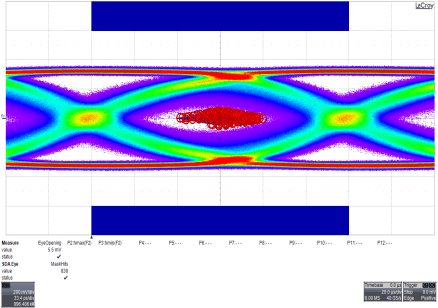 Figure 13. DE = 0 dB, EQ = 7 dB, Input = 36 inches, Output = 4 inches + 3-m Cable
Figure 13. DE = 0 dB, EQ = 7 dB, Input = 36 inches, Output = 4 inches + 3-m Cable
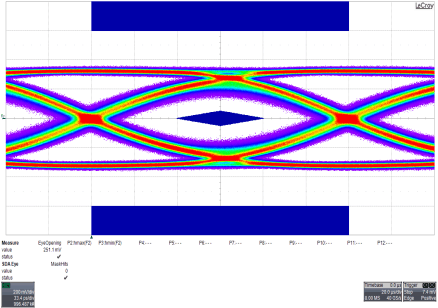 Figure 15. DE = 0 dB, EQ = 15 dB, Input = 48 inches, Output = 4 inches + 3-m Cable
Figure 15. DE = 0 dB, EQ = 15 dB, Input = 48 inches, Output = 4 inches + 3-m Cable
6.8.2 Case II Fixed Input and Variable Output Trace+ 3-m Cable
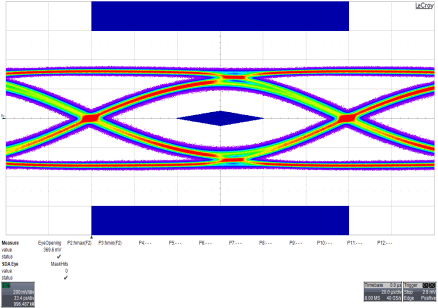 Figure 16. DE = 0 dB, EQ = 7 dB, Input = 12 inches, Output = 4 inches + 3-m Cable
Figure 16. DE = 0 dB, EQ = 7 dB, Input = 12 inches, Output = 4 inches + 3-m Cable
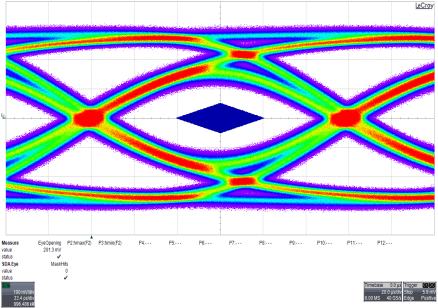 Figure 18. DE = 0 dB, EQ = 7 dB, Input = 12 inches, Output = 12 inches + 3-m Cable
Figure 18. DE = 0 dB, EQ = 7 dB, Input = 12 inches, Output = 12 inches + 3-m Cable
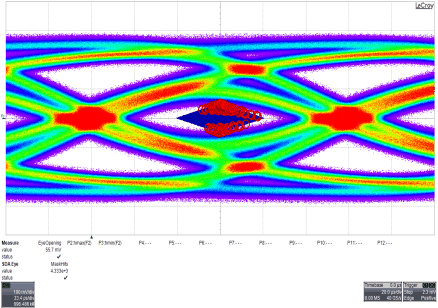 Figure 20. DE = 0 dB, EQ = 7 dB, Input = 12 inches, Output = 20 inches + 3-m Cable
Figure 20. DE = 0 dB, EQ = 7 dB, Input = 12 inches, Output = 20 inches + 3-m Cable
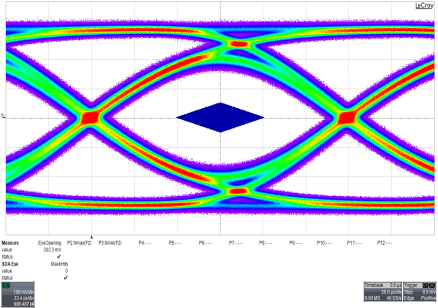 Figure 17. DE = 0 dB, EQ = 7 dB, Input = 12 inches, Output = 8 inches + 3-m Cable
Figure 17. DE = 0 dB, EQ = 7 dB, Input = 12 inches, Output = 8 inches + 3-m Cable
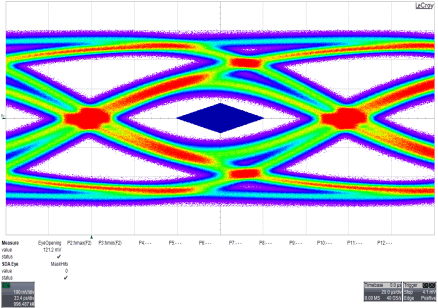 Figure 19. DE = 0 dB, EQ = 7 dB, Input = 12 inches, Output = 16 inches + 3-m Cable
Figure 19. DE = 0 dB, EQ = 7 dB, Input = 12 inches, Output = 16 inches + 3-m Cable
6.8.3 Case III Fixed Input and Variable Output Trace (No Cable)
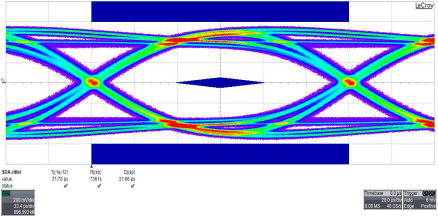 Figure 21. DE = 0 dB, EQ = 7 dB, Input = 12 Inches, Output = 8 Inches
Figure 21. DE = 0 dB, EQ = 7 dB, Input = 12 Inches, Output = 8 Inches
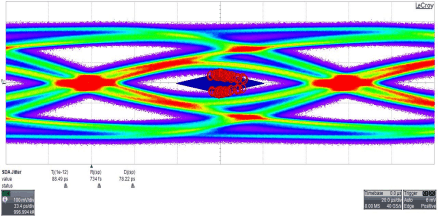 Figure 23. DE = 0 dB, EQ = 7 dB, Input = 12 Inches, Output = 36 Inches
Figure 23. DE = 0 dB, EQ = 7 dB, Input = 12 Inches, Output = 36 Inches
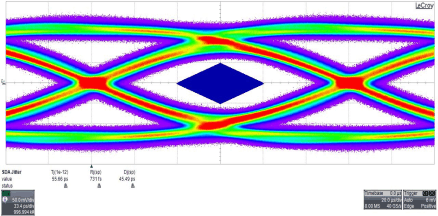 Figure 25. DE = –5 dB, EQ = 7 dB, Input = 12 Inches, Output = 40 Inches
Figure 25. DE = –5 dB, EQ = 7 dB, Input = 12 Inches, Output = 40 Inches
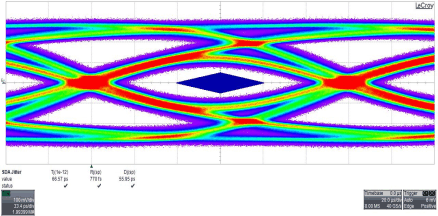 Figure 22. DE = 0 dB, EQ = 7 dB, Input = 12 Inches, Output = 32 Inches
Figure 22. DE = 0 dB, EQ = 7 dB, Input = 12 Inches, Output = 32 Inches
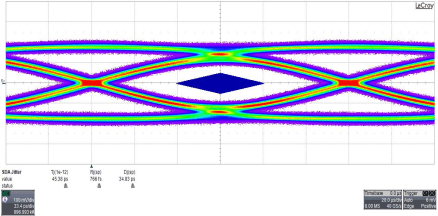 Figure 24. DE = –3 dB, EQ = 7 dB, Input = 12 Inches, Output = 36 Inches
Figure 24. DE = –3 dB, EQ = 7 dB, Input = 12 Inches, Output = 36 Inches
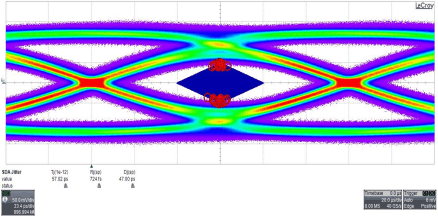 Figure 26. DE = –5 dB, EQ = 7 dB, Input = 12 Inches, Output = 44 Inches
Figure 26. DE = –5 dB, EQ = 7 dB, Input = 12 Inches, Output = 44 Inches